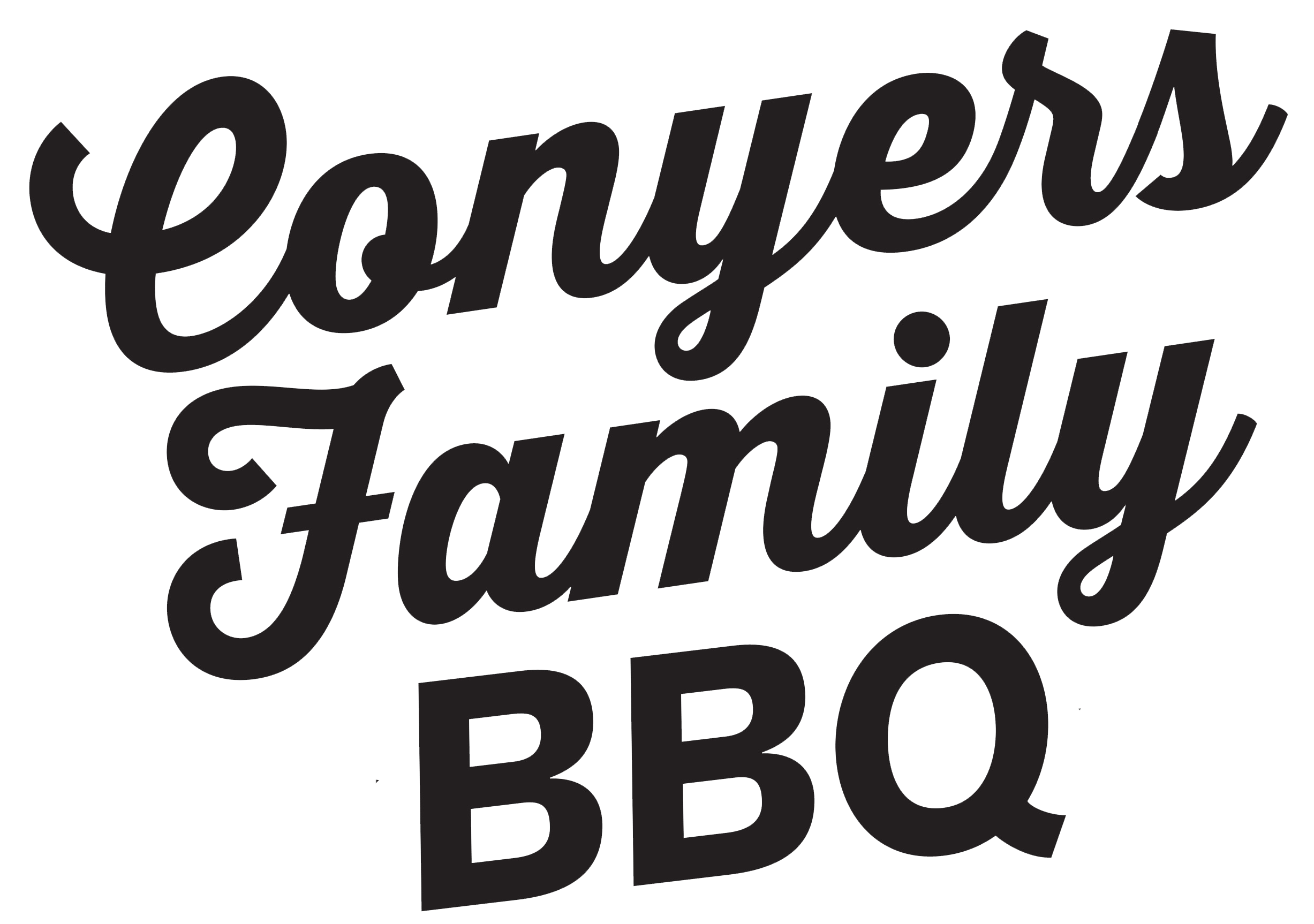Deah Berry Mitchell: Acknowledgement of local black-owned barbecue and call for diversity in current barbecue culture
In the earliest days of Dallas’ development, and post-emancipation, many Black locals began to spread about the yet unsettled land.
The pockets of communities were called freedmen towns. Then in 1873 a system was needed to improve the previously slow transport of the budding city’s greatest export – cotton. It was now that the railroad industry began to expand across North Texas, laying tracks in Dallas and cutting through the communities that had been inhabited by largely Black populations. Because many African Americans worked with the railroads in various roles such as pullman porters, service workers, or laying the tracks, it would make sense that they would build their homes along the railroads. Deep Ellum, in Dallas, was one such community. Named by the African Americans who often indicated they lived further south or “deep” on Elm street (pronounced “Ellum”) due to their dialects. These families began to build Deep Ellum into a thriving and successful neighborhood that eventually came to be known as the “live music capital of North Texas”. They opened food establishments that focused primarily on three specialties: fried chicken, fried fish, and of course barbecue.
Eventually the families were pushed to move to Southern parts of Dallas. But they continued their legacies of barbecuing with the same methods they had been taught years ago.
Imagine stepping back into time into a Dallas juke joint and hearing a bluesman pining away over his lost love while strumming a bass guitar. The lights are low, you can smell the distinct smokiness of barbecued meats and you thirstily wash down your chopped beef sandwich with the popular homemade brew, persimmon flavored beer.
Pre-commercialization of the food and beverage industry menus typically involved one of those three specialties: fried chicken, fried fish and barbecue.
One explanation is that these foods allowed a budding food entrepreneur the ability to feed the masses, for clarification fried foods cook quickly and barbecue can be cook in mass quantities to feed a lot of people. Living close in proximity to nearby Trinity River, for example, you would have been able to catch your own fish thereby cutting out the middleman and maintaining more of your profits. When farming was more embedded in the community, cows and hogs were easier to come by for barbecue in a time with no refrigeration. Fried chicken came more accessible when commodity farming came more online. Also, according to Record’s Barbecue matriarch, Barbara Record, in the Black community it wasn’t uncommon to share resources with barbecue competitors because sometimes they were friends or even extended family.
Record recalls how when her husband Albert started the business 53 years ago in 1969, they sometimes lacked resources but other nearby pitmasters always offered what they had in surplus and they would all share.
There are a small handful that have withstood the test of time by weathering the fickle storms for over 50 years like Record’s Barbecue, or even Hardeman’s BBQ which has been operating for over 75 years. A feat. Still not quite as ample, but more widespread are the 30-plus year operations, among them being award-winning Smokey Joe’s.
They have been located at 6407 South RL Thornton since a wintery December afternoon in 1985. The building, cozy and unassuming, was resurrected from the faux ashes of the previous structure, a tiny gas station that proudly served the neighborhood in the 1930’s, whitewashed facade with crimson red trim. The dining area is an add-on, built later to accommodate a growing need to offer diners a choice between walk-up only, as it had been since its origins, or dine-in. A photo of the original Smokey Joe’s rests on a wall in the dining area where customers sop light bread in leftover sauces dripping along the brown butcher paper on the silver school lunch trays. The wood floors releasing a recognizably sweet piquant aroma arising from the floorboards like a smoky atonement straight from the Old Testament to the gods. It’s a bit of sensory overload – but in the most magnificent way. The smells, the visual stimulation, the sounds of whatever plays on the television act as an auditory backdrop to the r&b music causing guests to tap their feet in rhythmic beats as they await the cue from the omnipotent voice connected to the loudspeaker that it’s time to grab their food.
When I placed my order, I didn’t mention I was there as a writer at first. I wanted to blend in so that I could experience the atmosphere just as a casual diner would have.
The staff was overly accommodating and with just the right amount of comfortability. A cashier, a rosy cheeked young woman behind the counter who must have seen the indecisiveness of my stare, greeted me warmly and asked if I had any questions about the menu. “I hear you’re known for your ribs. Is that right?” I ask in a matter-of-fact tone. Her smile turned upwards into a sly grin as if she held a secret I would soon discover. Here, at Smokey Joe’s, behind the smoldering smell of firewood embedded into the walls, it occurs to me that Smokey Joe’s has done something quite remarkable. His staff reflects his hungry patrons, so that you see a bit of yourself in every employee. Quite a different outlook from some who still seem to use Blackness in servitude roles as a way to appease customers. This thought transports me to chapter 2 of Savage Barbecue. I am reminded that in barbecue culture, Blackness is often used as a sort of cultural reset, if you will, to contrast against whiteness. The act of slaughtering a beast, cutting its innards out, rotating it on a spit over open flames and feasting on its flesh, is what Americans once deemed barbaric against the more acceptable genteelness of European standards of the Gilded Age.
The juxtaposition of labor versus leisure. This woman, Lindsay, is a welcome progression of that antiquated mindset.
“Oh yeah,” Lindsay continues, “we’re definitely known for our ribs but anything you get from here is gonna be good. I can promise you that!” It’s that Texas sized ego that some commonly misjudge as arrogance that I am all too familiar with, and in an instant, it makes me feel as though I am at home, back in Sherman, awaiting my white paper plate edged with printed floral etching, full of half-burnt smoked hot links that had sadly fallen into the hot embers and been quickly scooped out before serving and barbecued chicken lovingly prepared by my uncle, Thomas Earl.
I then tell her I want a bit of everything so I can have a decent sample of what they have to offer. She looks curiously at the menu trying to make the best decision and then I decide to let her know that I was a writer and, on an assignment, to write about Smokey Joe’s. She smiled seemingly unphased by the attention, I’m sure accustomed to the spotlight since being placed consistently at the top of some of the state’s most honorable barbecue lists. She disappeared towards the back, and I watched her as she spoke with who I assumed was the owner I wanted to interview, Mr. Kris Manning. He looked much younger than I anticipated for an award winning pitmaster. Lindsay reappears and the man, Kris, approaches behind her. I introduce myself and we exchange pleasantries. I apologize for stopping by unannounced but went forth in asking if he might have time to speak for a few minutes with me about his restaurant. He happily obliges and she continues my order. I shared with Kris that I knew I wanted his famous ribs, but beyond that I was willing to try anything he suggested. She offered a large platter that would have been enough for me to eat, have leftovers and still feed a hungry date. I politely declined, instantly wondering if I’d make a mistake and instead opted for something in the middle. It could have comfortably fed two adults’ and consisted of ribs (both beef and pork), pulled pork, sausage links, macaroni and cheese, corn casserole, sliced dill pickles and pickled red onions. Kris hands me my order number and instructs me to wait for my food in the dining area and when my food was ready in a few minutes he would be out to sit with me.
As I waited patiently, I watched the steady stream of customers that slowly started to drift in.
I read online reviews that warned that it’s not uncommon for Smokey Joe’s to run out before it’s time to close so I arrived immediately at 11am when the doors opened. An elderly man shuffled along the wood floors and accidentally tripped while carrying a paper bag full of whatever deliciousness he ordered, I held my breath, and a quick-thinking Black woman not much younger than the man grabbed his elbow assuredly and steadied him by helping to catch his balance. Just as she helped guide him towards the exit, her order number was called by the same woman who took my order and older Black woman yelled back, “That’s me suga! I’ll be right there!” There was a familiarity with her tone. She finished walking with the older man until he reached the front door and then she pushed the worn handle allowing the bright sun to pour into the main entrance as he hobbled out to his weathered Chevy Silverado. Just before the door closed it reopens abruptly. This time a middle-aged police officer enters with a low cut. He smiles briefly and saunters by to place his order. As I begin to settle into my seat, I hear Kris over the loudspeaker call my order number. I hungrily grab my silver tray and immediately find the bench I had made myself comfortable at just seconds ago. My seat is still warm. The platter is a feast. My eyes sweep over the expansive selections, and I attempt to decide where to start. I knew Kris would be out shortly, but I naively bet that I would have time to get one bite in before he arrived. Now I should inform you, I usually have a bias for all things beef.
I’ve never really been a pork rib lover, but something about the way the ribs glistened, they seemed to beckon for me.
I picked up the meaty pork rib and inspected its pink interior. I looked over my shoulder and then picked up the rib to take one bite. I closed my eyes and was delighted and surprised to find I enjoyed the taste. I don’t think I finished chewing the first bite when I greedily decided to bite another. This time, as fate would have it, Kris appears at my table, and I am embarrassingly rubbing grease from my mouth and hurriedly scanning the table for a napkin to wipe my hands so that I may greet him properly. He laughs and apologizes for catching me off-guard. I laugh too, no doubt exposing a pesky piece of pork stuck between my front teeth. One thing I notice immediately is how comfortable Kris appears. He is equal parts humble and eager. He reveals that although his father has been part owner of this well-known neighborhood spot, his father was the “silent investor” with his friend Joe, Kris’ surrogate uncle, who took him under his wing after he graduated from Stephen F. Austin University and gave him a crash course in everything he had learned over the past few decades.
I ask Kris how it felt to step into such large shoes a few short years ago when he took over as operator and his answer was refreshingly honest, “Overwhelming.”
He continued, “He (Joe) made sure he went over everything with me in great detail. Coming from my background it was a lot to take in. I was scared I wouldn’t be good enough.” When I point to the obvious signs framed and displayed on either side of us, I wave my hand and ask, “So I’m sure all of these accolades helped calm any fears you may have had in the beginning about your worthiness.” Surprisingly, he answered that the awards certainly helped but that he was always looking for ways to improve his craft. His modesty was a stark contrast to the server’s braggadocious demeanor minutes earlier. Kris also revealed his contemplation of attending culinary school. I was perplexed as to why this accomplished pitmaster would feel the demand to improve on something already so perfect. “I always feel like you can always be better. There’s always so much more to learn. Joe taught me so much but it took him years to acquire that knowledge. I wouldn’t dare think that I already knew everything.” He continued revealing an unconscious bias that some awards unknowingly enforce. “These competitions” he motioned towards the awards hanging on the walls, “choose which restaurants are the “best” based on skills that are usually only taught in formal settings like culinary school.” He explains further that tactics considered such as specific measurement amounts to add consistency to products and cooking methods used to prepare sides are all judged by groups of people who have only known formal training taught in schools so their palates are influenced by that. For example, although no racial group is a monolith, there is some truth to the expectation that Black people traditionally bake their mac-in-cheese, while other races may prefer a more loose and “saucy” texture than can be achieved with the stovetop versus the oven.
Cultural differences like these are not acknowledged by non-Black competitions.
Hearkening a need to further diversify judging competitions to lead to a more inclusive and accurate picture of what barbecue really is. For many, barbecue is not a series of rigid, proper systems that are taught within a formal setting, but perhaps a much more nuanced and fluid intangible quality that can only be attributed to the indelible remembrance of our ancestors’ fortitude. With this concept I am reminded of a question posed by Dr. Howard Conyers in his blog “Conyers Family BBQ” dated March 22, 2022,
“Science has proven to us that trauma can be passed down in DNA, by leaving a chemical mark on the genes…If barbecue was invented anywhere from 375 years to almost 500 years on the soils of the southern United States by Black BBQ cooks, could BBQ also leave a chemical mark on genes in black people…?”
Some, including myself. would argue the answer to this thoughtful question is an astoundingly loud yes!




